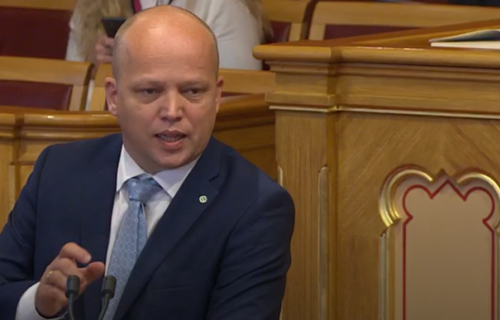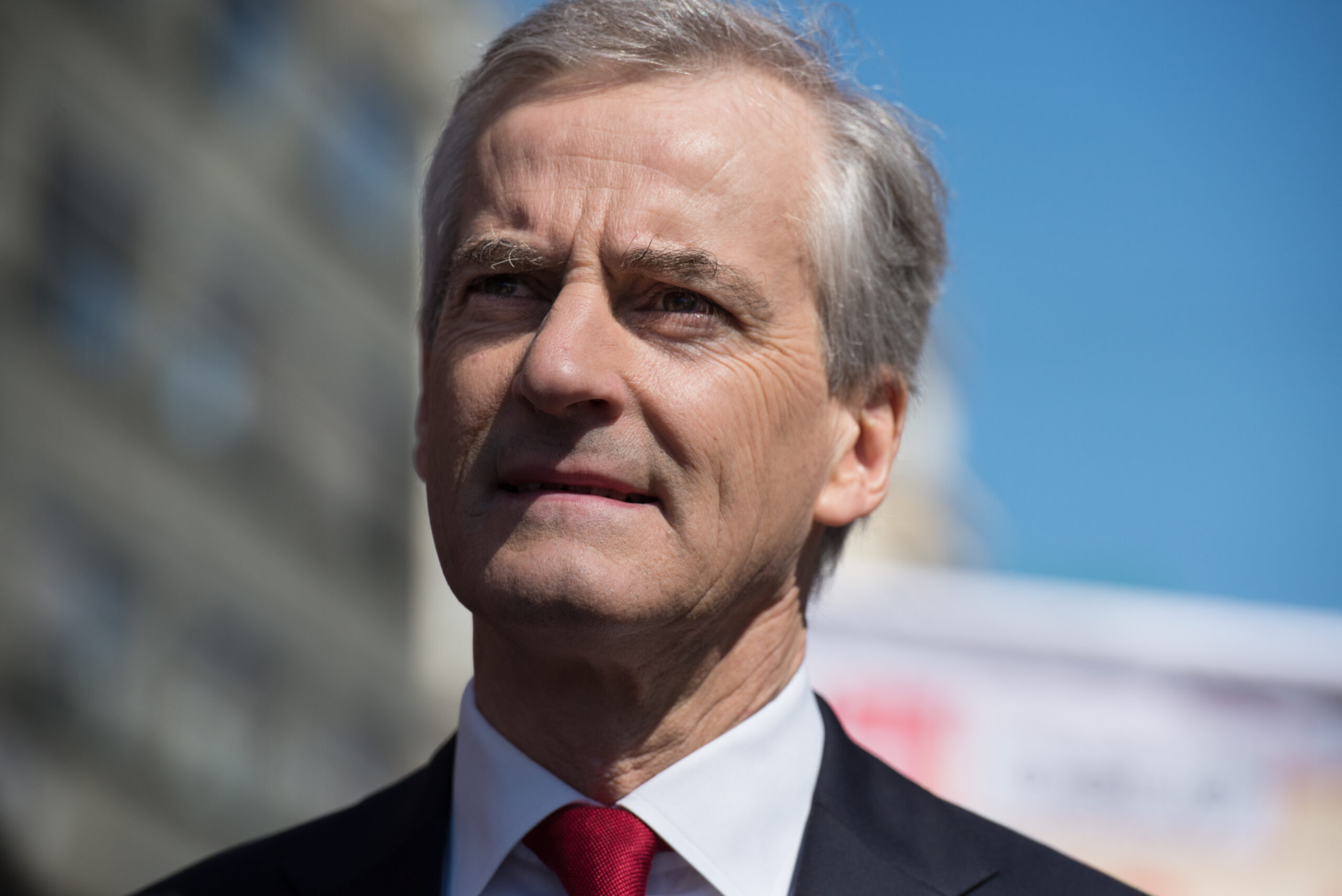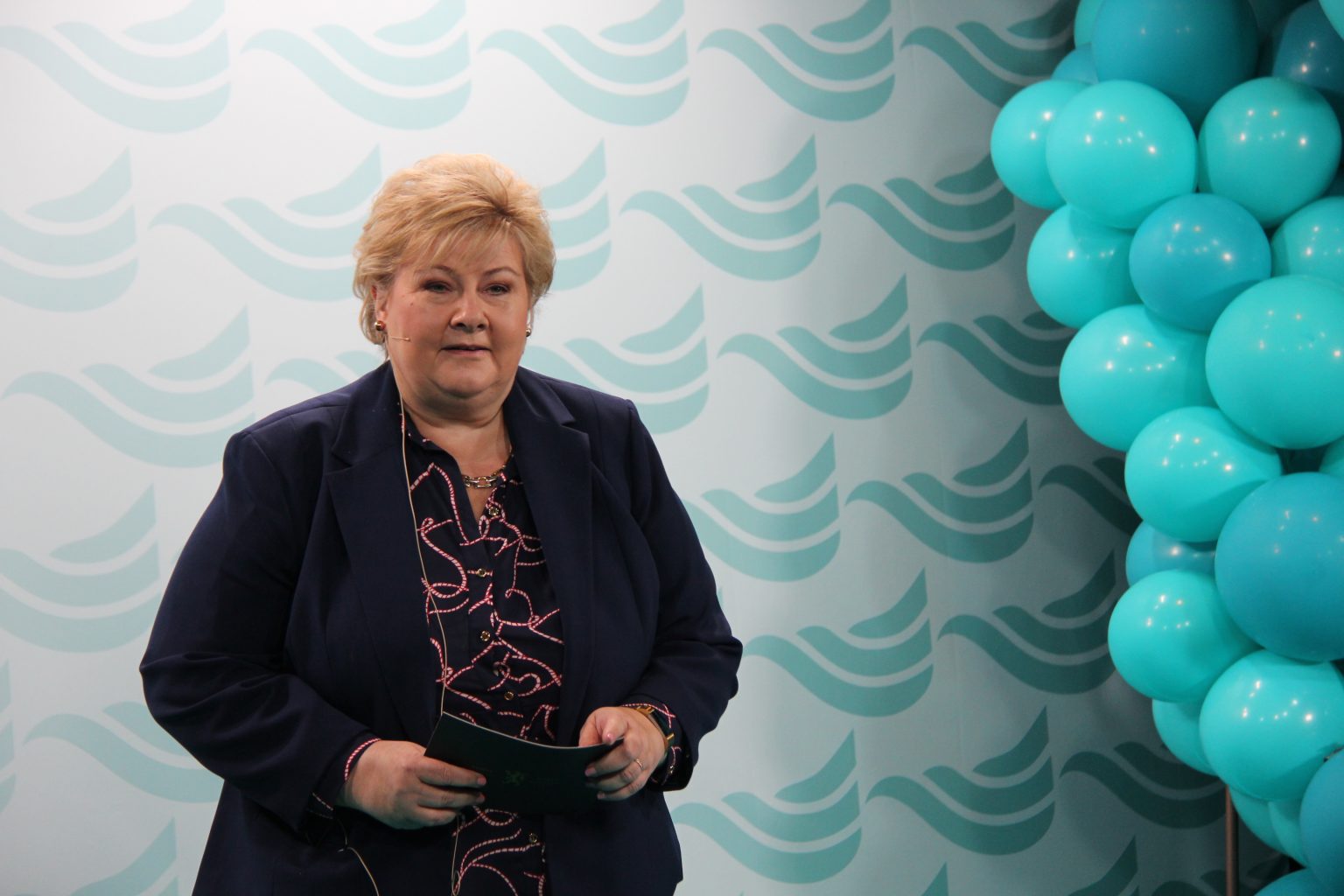After Brexit, is Nexit next?
When Norwegians go to the polls to elect a new government next Monday, a group of business leaders will be waiting nervously for the result.
They are the country’s fish farmers who fear a change of government could have a profound impact on their finances and on the way they operate in future.
Aquaculture has been a phenomenal success story for this country of fewer than six million people.
In less than 50 years it has grown from scratch to become the world’s largest salmon farmer, exporting more than a million tonnes worth NOK 70.1 bn (£6.1bn) last year and providing secure employment for dozens of coastal communities.
But not everyone is cheering. Norway is home to a strong environmental lobby which would like to end open net farming and political parties, mainly on the left, which believe that aquaculture companies have been making handsome profits and should be paying more in tax.
The election is scheduled for Monday 13 September with Labour strongly tipped to win back control from Prime Minister Erna Solberg’s Conservative-led coalition after an eight year absence.
Norway’s proportional representation system means there is rarely an outright winner, so if Labour does well, it will probably need support from other left-leaning parties.
This is where it becomes interesting for political pundits, but potentially disturbing for the salmon companies.
Norway-EU relations in question
The more immediate threat to the industry doesn’t come from the left, however, but from the euro-sceptic Centre or SP party whose popularity has been rising sharply in the polls.
It is a strong supporter of farmers, fishermen, food producers and local communities.
Led by the experienced Trygve Slagsvold Vedum, SP believes Norway made a mistake in joining the European Single Market. The party has been clear that it would like to see the country renegotiate membership of the European Economic Area (EEA) – and broadly follow the UK’s Brexit policy of going it alone.
Norway, while not an EU member state, is a member of the European Single Market. This means it has to follow many of Brussels’ rules, a situation which does not go down well with a sizeable section of the population.
The Centre Party’s political stance has been hard to define having supported both right and left alliances in the past.
It recently rose to around 18% in the poll of polls, three points behind the Conservatives and six points behind Labour. This is not enough to lead a government, but it does place it in a position to make demands if invited by either side to join a coalition.
It is the party’s views on EEA and single market membership that have set alarm bells ringing in the offices of seafood companies and the employer organisation Seafood Norway.
The Conservatives have accused SP of pursuing a dangerous path, and point to the chaos and near disastrous impact on Scottish seafood exports following Brexit.
The Conservatives argue that transport costs could be up to NOK 500m (£48m) higher if Norway quits the EEA, adding: “Then we have to look at what trade agreements the EU has with other countries, to see what is realistic.
“The (other) most important difference for the aquaculture industry is that through the EEA agreement we have joined the EU veterinary system, and that the EEA agreement provides access to important labour,” says the party.
While trying to remain politically neutral, Seafood Norway stresses that the EEA agreement is vital for the future prosperity of the seafood industry – and aquaculture in particular.
“Through the EEA, we have a seamless trade that means that we avoid test and border problems. But the EEA agreement also provides increased tariffs with increased processing because the fish is not fully included in the EEA agreement,” said Seafood Norway CEO Geir Ove Ystmark recently.
Stine Akselsen, head of business at Seafood Norway said the agreement ensured trade in seafood could take place without border controls.
She warned the Centre Party’s policy of “throwing the EEA agreement overboard “should not only scare the industry”, but also those coastal communities where fish farms and fishing ports are located.
The EEA is also one of the few areas of agreement between Erna Solberg and Labour leader and prime minister hopeful Jonas Gahr Støre.
Solberg says: “We do not need that uncertainty. The more we weaken the EEA agreement by vetoing and saying no to various areas, the more we weaken our negotiating position vis-à-vis the EU.
“What I am most afraid of is [that while] being a guarantor of the EEA agreement, we may also undermine the same agreement.
“Not that I think Jonas [Støre] will terminate the agreement, but that his friends in government will weaken it.”
When asked directly, Støre said he would like to remove processing duties which would help seafood, but admits that would be difficult if Norway insists on protecting its own vulnerable industries.
Seafood Norway said both Solberg and Støre were quite clear that they wanted more seafood processing to be carried out at home, which was a good starting point. But it was unclear as to how far they would go to achieve that aim.
Even if the Centre Party further increases its position in the polls in the run-up to election day, it will find few backers for its anti-Europe views in either of the two main parties.
It is more likely to chip away on Europe by seeking allies from the smaller parties on either the left or right until, like Brexit, the voters are on-side.
Taxing the farmers
Then there is the issue of taxation. Until the coronavirus pandemic hit earnings, Norway’s salmon farmers were making big profits which are now showing signs of returning.
Many Norwegians believe the big farmers don’t pay enough taxes. There were howls of protest from the industry a couple of years ago when a (Conservative) government-appointed committee recommended a 40% flat rate tax – dubbed the salmon tax – should be levied on companies.
Some businesses warned that if this tax became law they might take future investment to Scotland and other fish farming countries.
The plan was quickly shelved with even Labour coming out against a flat rate tax. However, it is in favour of a new tax based on output or on how much land or fjord water companies used.
The industry is likely to be nervous about such an idea because of its open ended possibilities, arguing it has taken a big financial hit during the pandemic.
Erna Solberg’s party may be lagging in the polls, but she remains a popular prime minister even though she was fined for breaching her own Covid rules by attending a family birthday party.
A lot could depend on her mending fences with the more right wing Progress or FrP party. The two fell out two years ago when the government allowed an ISIS-supporting mother back into the country.
Her biggest threat, however, may come not from her opponents but from sheer voter fatigue.
- Trygve Vedum
- Jonas Gahr Støre, leader, Norwegian Labour Party
- Erna Solberg




